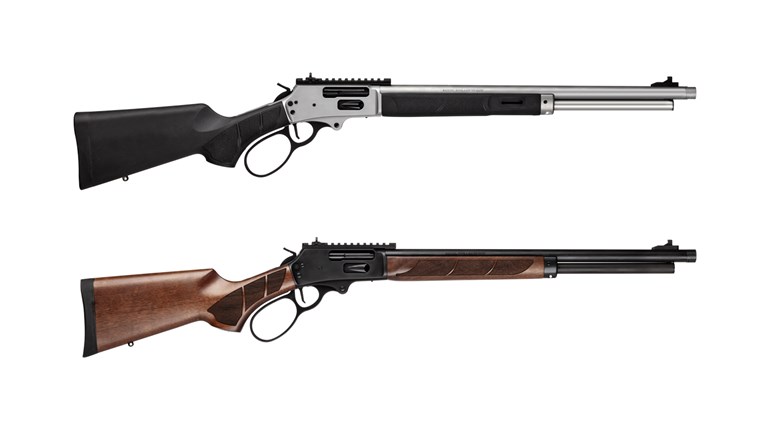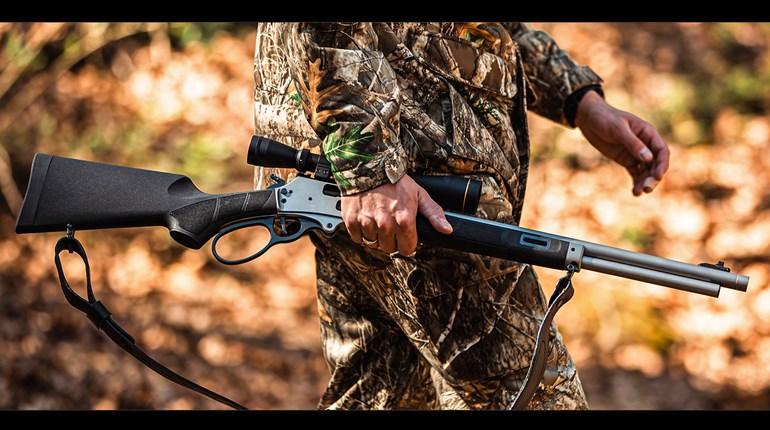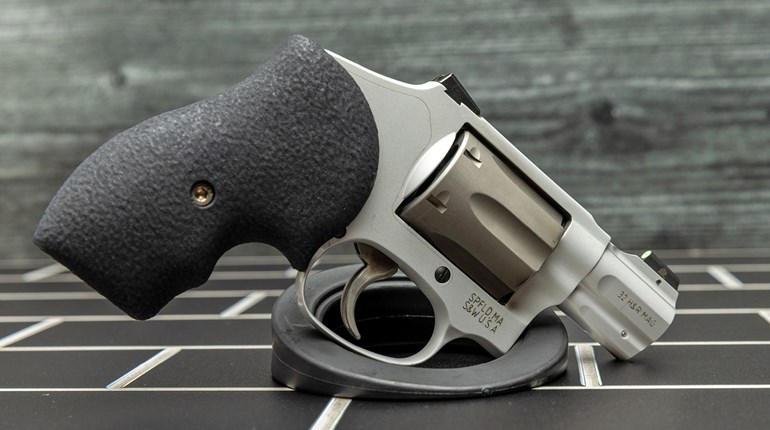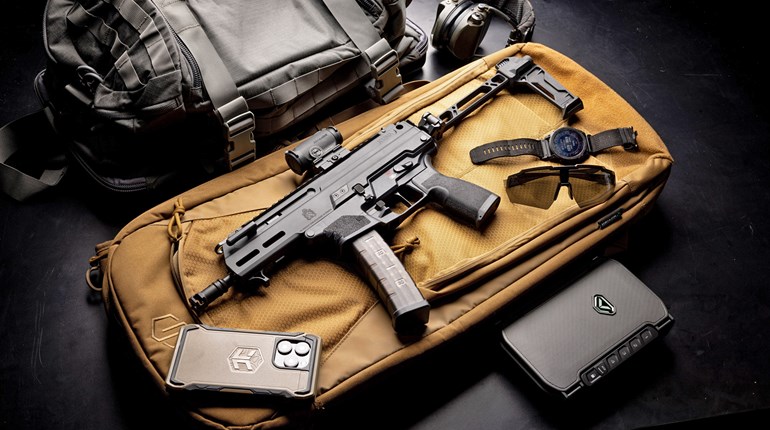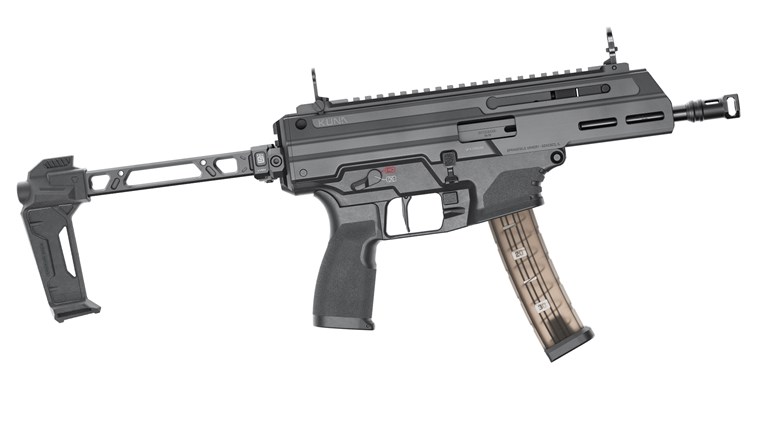
J-frame revolvers, the smallest-frame wheelguns currently made by Smith & Wesson, are enormously popular--and have been for decades. It’s easy to understand why, as history is replete with examples of small things making huge impacts. Smith & Wesson J-frame revolvers are perfect examples of how something little can be a big deal.
From self-defense for the armed citizen to a backup gun for law enforcement, there have been countless lives saved by those J-frame revolvers. While those lives might be a fairly small statistic in world history, every single one was infinitely important to those who relied on the wheelguns to get them home.
Smith & Wesson manufactures a range of small-frame revolvers for self-defense. Generally classified as J-frames, these revolvers use the company’s smallest current production wheelgun frame. Many people know them as “5-shot .38s,” though the breadth of the line is much larger than that.
Smith & Wesson currently makes J-frame revolvers in a range of calibers – from .22 LR to .357 Magnum. You have your choice in frame materials, sights, grips and finishes. The most significant decision many shooters make when selecting one is choosing which of three distinct hammer variations they want.
Three Hammers
Traditionally, Smith & Wesson offers three different hammer options on the J-frame revolver: an exposed hammer, a concealed hammer and a shrouded hammer. These have historically be called "Chief's Special," "Centennial" and "Bodyguard," respectively. Through the years, however, Smith & Wesson has reassigned names -- Chief's Special became a micro-9 mm semi-automatic, while the Bodyguard was repurposed for the M&P-themed hammerless. Although the hammers serve the same general function, each is different and offers its owner a unique benefit over the alternatives.
Which is right for you? Let’s take a look at the options.
Exposed Hammer
Exposed hammers are the classic look for a revolver. As you pull the trigger, the hammer comes back and then falls forward to shoot a single round.
J-frame revolvers with an exposed hammer can be shot double-action by merely pulling the trigger. Since the hammer is equipped with a spur, it can be thumbed back to cock the gun. With the hammer cocked back, the gun now requires only a single action trigger pull to fire the weapon.
A single-action pull is much lighter and crisper than a double-action pull. For precise shooting, a single action shot is easier than a double-action pull for many shooters.
One example of the exposed hammer J-frame is the Model 360 PD. This is a five-shot handgun chambered for the .357 Magnum cartridge. With its sub-12 ounce weight, it can be a bear to shoot. While the single-action mode doesn’t help with recoil, it can help some people deliver a more accurate shot.

Enclosed Hammer
The second hammer type is called the concealed hammer. Sometimes known as Centennials, these Smith & Wesson wheelguns are mistakenly referred to as hammerless because there is no visible hammer. Appearances can be deceiving as these guns are hammer-fired. The hammer is completely encased inside the revolver housing, giving it a hammerless appearance.
Without an exposed hammer, the Centennials are double-action-only wheelguns. That means you have to make the comparatively longer and heavier pull of the trigger than a single-action shot would allow.
The essential advantage to this hammer style is the design prevents anything from hanging up on the hammer during a draw. For concealed carry, this is an obvious benefit.
A classic example of the Centennial handgun is the Smith & Wesson Model 642. This is a .38 Special revolver built on an aluminum frame with fixed sights. I’ve carried one of these for much of my adult life – both as an armed citizen and as a backup gun in police work. I love this gun, and it’s one of the few Smith & Wesson still offers without an internal lock. 
Shrouded Hammer
Bridging the gap between the exposed hammer and the fully concealed hammer is the shrouded hammer. In Smith & Wesson J-frames with a shrouded hammer, most of the hammer is hidden behind side plates while the spur is still accessible to the shooter.
Probably the most famous shrouded hammer J-frame is the Model 38 Bodyguard. Often, the shrouded hammer Smiths are often just called Bodyguards. These should not be confused with the company’s confusingly named Bodyguard 38 revolvers, which use a Centennial-style concealed hammer.
A shrouded hammer revolver prevents most things from catching on the hammer during a draw. Yet, it still allows for a cocked, single-action shot if you desire. Some might say it is the best of both worlds.
I own a Model 38 with a sweet single-action pull. The double-action pull is on par with my Model 642. The only thing I don’t like about this gun is having to clean out the dust and grime that accumulates in the shrouded area.
Which to Pick?
In my experience, the single-action options of the shrouded and exposed hammers are helpful but not necessary. With my Model 642 Centennial, I can reliably hit 8” plates at 25 yards with heavy +P self-defense ammunition. When I was younger, my groups at that range would be slightly half of that. The key is quality training and regular practice.
That said, I enjoy shooting my Model 38 Bodyguard as well. If engaged in a friendly bet on the range, I’d gladly thumb the hammer back for a crisp single-action shot when the range fees are on the line.
Ultimately, the choice is yours. With the current Smith & Wesson J-frame line-up, you can’t go wrong with anything you choose.











